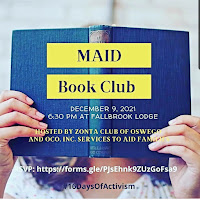by Jeanne Sarson and Linda MacDonald
354 pages, Hardcover, Paperback,& Kindle. Publication Date: August 31, 2021
A review by Judith Ainsworth, Zonta Club of Ottawa
WOMEN UNSILENCED explores the impact of unthinkable violence committed against women and girls through many perspectives—women’s recall of life-threatening ordeals of torture, human trafficking, organized crime, society’s failure to recognize and address such crimes, and close examinations of how justice, health, political and social systems perpetuate re-victimizing trauma. At times raw, painful and shocking, this book is an important resource for those who have survived such crimes; professionals who support those victimized by torturers and traffickers; police, legal professionals, criminologists, human rights activists, and educators alike. It reveals how healing and claiming one’s relationship with/to/for Self is possible.
Jeanne Sarson and Linda MacDonald are retired public health nurses whose own experiences helped give voice and understanding to women who have been silenced. The book uses women’s storytelling to educate readers on the unimaginable layers of perpetrators’ modus operandi of violence, manipulation and deceit. They heard from other women who suffered torture when exploited in prostitution or pornographic violence. They defied social willingness to ignore that such violence existed by calling for non-State torture to be criminalised and they use their website www.nonstatetorture.org to promote global awareness.
Their ground-breaking work began in 1993, fifteen years before the United Nations Committee against Torture ventured to write, in 2008, that acts of torture committed by private individuals or groups are specific human rights violations. Back in 1993 they could find no literature on how to offer recovery care to women who survived such torture. They made it a goal to break this silence by detailing the intimacies of their recovery work journey offering care, hope and belief to women in WOMEN UNSILENCED.
They are often asked how two women—two nurses—who live in a little Canadian Nova Scotia town managed to achieve what they have. Their answer is simple: “We cared!”







